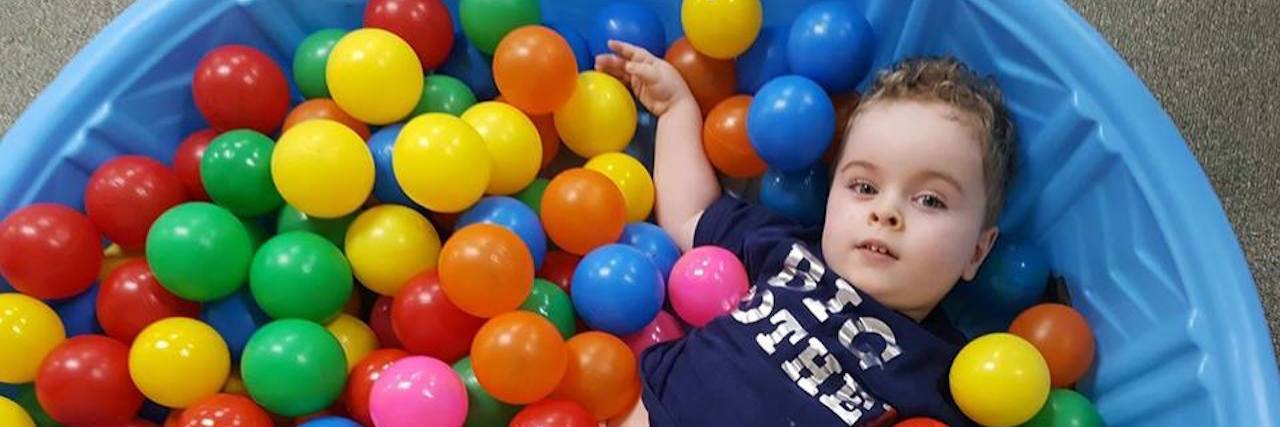I found myself sitting in a therapist’s office because it had all become too much to sort through on my own.
Not long into our session together, I mentioned my son has a disability. My therapist’s face changed. He told me his sister had a disability. Instantly, we clicked. I went on to tell him about Roland’s level of disability, his diagnosis (or lack thereof), and how the grief I felt surrounding his disability was adding to my depression (a depression I’ve battled my entire life).
And he got it. He totally got it. We talked for a while, and then it came back around again: my grief.
I began to flood him with my “what-ifs.”
“What if Roland never walks? What if he never talks? What if he knows he’s different from other kids? What if he wishes he could do what they do? I just want him to have a good life. I don’t want him to miss out on his childhood because of his disability. I don’t want him to miss out on all the fun things I did when I was growing — ”
He stopped me, gently. I fell silent, messing with the rings on my fingers so I didn’t have to look him in the eyes anymore.
Then I heard him ask, “Question: did you go to Europe when you were growing up?”
Huh? Was this guy seriously asking me about what I did growing up? Had he not listened to anything I was just ranting about?
“What?” I asked.
He repeated the question.
“No, I never went to Europe when I was growing up. Why?”
He challenged me. “But other kids went to Europe on vacation, when they were growing up.”
“So?”
“Would you say you had a good childhood, despite never going to Europe?”
“Yeah,” I answered. “I did.”
And then it clicked.
“Other kids went to Europe and went on lavish vacations, but you didn’t. You didn’t get to do the same things as other kids. And you still had a great childhood. Roland’s disability isn’t bad. It’s just different… He isn’t going to do all of the same things as other kids, but he will do other great, fun things. And, sure, he may wish he could do things they are doing, but as kids… as human beings… we are always jealous of someone or something. Those same kids may look at Roland and feel jealous of him for something they can’t do or have.”
He went on, “and Roland will do things his own way. Just as my sister did. He will find his own way of doing what he wants to do in life. Never underestimate the power of human adaptability.”
After this session, I felt like so much weight had been lifted off of my heart. His words continue to ring in my head often, especially on days when I feel grief trying to worm its way back in.
If you are grieving, just remember: this life isn’t bad. It’s just different than most. Still beautiful, still amazing, still exciting and fun. And your child’s disability isn’t a bad thing, either; it’s just different. Your child may not get to do everything that his/her peers do. And that’s OK. They will still grow and thrive and find joy in other — and sometimes unexpected — places. They will find other ways of doing things their own way. They will adapt. And you will adapt to this unconventional life right alongside them.
Follow this journey at All Things Considered.
We want to hear your story. Become a Mighty contributor here.

